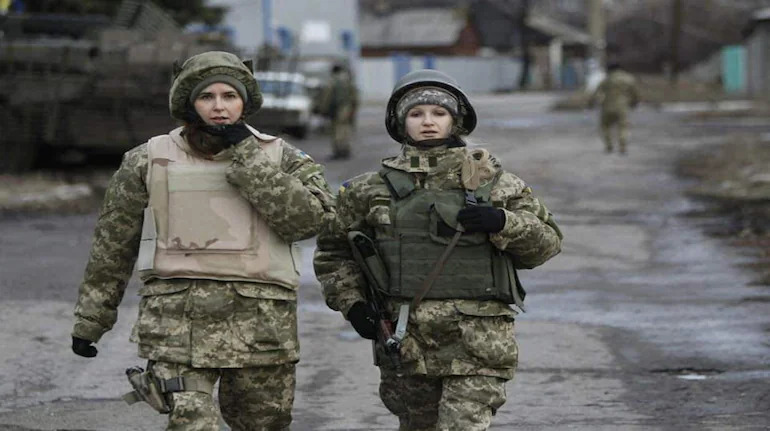We consulted some of the best smallcase Managers working today in India
The Russian invasion on Ukraine has sent the global markets spiralling into chaos. In the last few days, the Indian Markets saw a drop of more than 5%. How long is this going to last? Will the markets recover? What are the major impacts we could be facing and what to do about it? To understand this better we consulted some of the best smallcase Managers working today in India.
Sonam Srivastava, Founder and CEO, Wright Research
While the trade and corporate sectors might not see a direct hit, the global inflation in crude and commodity prices will worry India. The sentiment from a worldwide conflict would hit Indian markets and cause volatility to persist. However, India is at a historically low PE with this conflict, and we expect markets to jump back up as soon as the dispute is resolved. In the meantime, the crude oil price rise would escalate supply-side inflation in various sectors and cause price rise for the end customer. Agro commodities, coal, and metals would see an impact as well. The banking sector looks robust in this crash, along with energy and metal segments. We should focus on large caps and diversify towards gold and liquid bonds in the meantime and keep our entries in the market staggered with SIPs.
The Ukraine-Russia war has created tremendous uncertainty in how the world economy will work going forward, with crude prices nearing all-time highs and trade tensions ongoing. Hostilities should end soon – hopefully by negotiation, but otherwise by force. Once uncertainty is reduced, markets tend to take human conflict in their stride, that’s the learning from military conflicts over the last six decades. Looking at India, the NIFTY, even with the recent decline, has more than doubled from the March 2020 lows, and yet the PE ratio now is lower than it was at pandemic lows, which means earnings have grown significantly. Rather than predict what’s next, our quantitative approach will react to underlying price trends to determine portfolio strategy.
Atanuu Agarrwal, Founder and CEO, UpsideAI
The most obvious direct impact in oil prices and the knock-on effects. As we speak it has topped $130 and that poses a significant upside risk on inflation. For India it could be a double whammy with respect to its twin deficits – a high import bill will push up the current deficit. On the other hand, it may force the Government to lower excise and other duties to reign in inflation. Also, in this environment, any major divestment (like the LIC IPO) plans may get delayed. Also, Ukraine and Russia being cut off from the global supply chain for extended periods of time may further exacerbate supply chain issues. For example, Russia accounts for 40% of the global production of Palladium, which is an important component in automobiles and semiconductors. Ukraine accounts for over 90% of the US’s semiconductor grade neon.
Divam Sharma, Founder and CEO, Green Portfolio
This war will further take us towards de-globalization, with many countries wanting to be self-dependent on their consumption.
India witnessed a rise in action towards FTAs with UAE, Mauritius, Australia and Canada and this trend of working closely with complimenting and friendly trade partners will be the new normal.
The world markets will witness hyper-inflation over the coming months with some commodity prices going to unprecedented levels. This will impact interest rates, liquidity and business margins over the next few quarters.
It is time to re-allocate capital to companies with strong management track, low leverage, business moats, that can ensure continuity of their inputs, cushion of margins, and comfort of valuations.
Abhishek Banerjee, Founder and CEO, Lotusdew
This conflict will put upward pressure on inflation due dominant Russian position on energy. Russia getting removed as a supplier of energy to Europe could drive up inflation when growth has not yet caught up. The US is in a precarious position where the federal reserve is guiding a 25 bps rate hike in 2 weeks citing tight labour markets, yet companies are closing offices, operations with Russia like Ikea, Apple etc thus reducing revenue. This is further complicated with cargo and shipping routes are longer and more expensive. All this points to a general uptick in inflation when economies are still recovering from covid lockdowns. Classically a low growth yet high inflation environment is known as stagflation. Overall, we should seek to look for business models that benefit from higher inflation and are non-cyclical. Within equity sectors like financials, jewellery as a proxy for gold, essential services like pharma, biotech, capital markets and real estate trusts could be medium-term beneficiaries.
With the current scenario escalating and tensions mounting, investors could use some rebalancing to minimize losses or even cruise through volatility to generate alpha.
To know more about smallcases in MoneyControl, click here
Reference Link:- https://www.moneycontrol.com/news/business/personal-finance/the-impact-of-the-russian-war-on-global-markets-and-what-to-do-about-it-8217281.html

